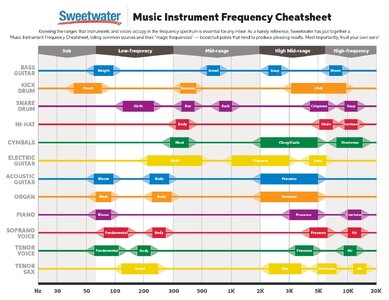D
Deleted member 194101
Guest
I agree harmonics change the sound of recordinga and if they were flitered out, you would get a different sound, but most CD players don't try to fill in the upper frequency gaps that don't exist with most recordings. I bet 99% of CDs contain harmonics people can hear and don't contain harmonics people can't hear. There's very little on CD with 15 to 20 kHz frequencies, because the instruments and synths in the recording studio don't produce much between 15 and 20 kHz. It doesn't matter what the CD format can cope with, or your choice of filter, if the harmonics on not on there, they won't change the sound and you won't hear them.Pioneer's compact disc player from the 90s used Legato Link technology, which attempted to recreate harmonics lost by the CD's brick wall format - they certainly sounded different to other players.
There was a video on YouTube of a record played on a cheap turntable (sub £200) which graphically showed energy way above 20kHz.


